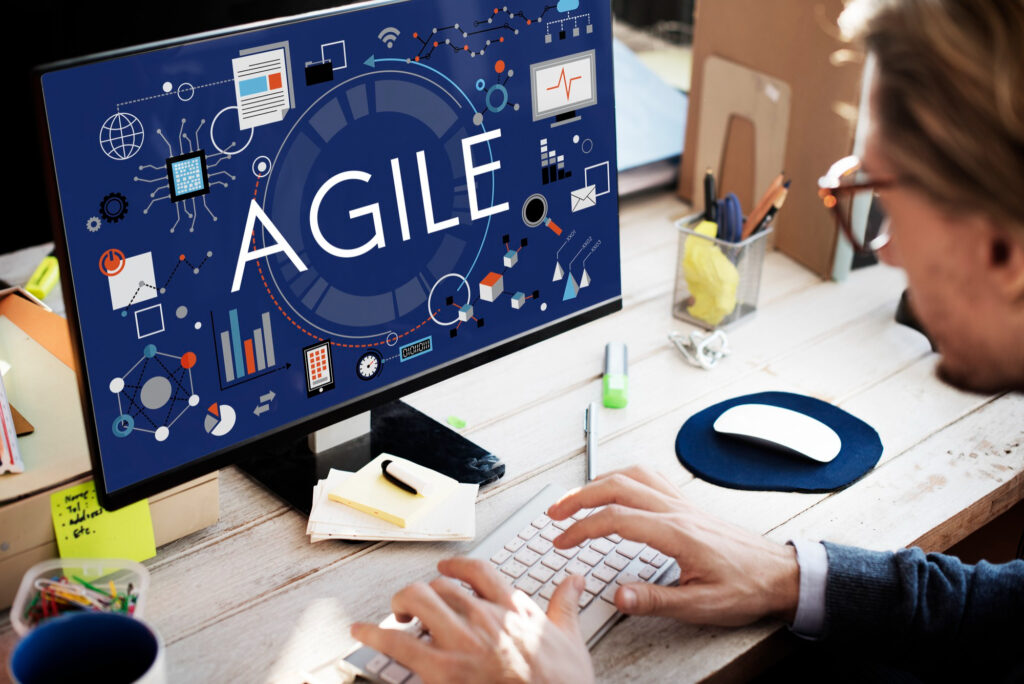Before choosing an ERP (Enterprise Resource Planning) System for your business, data security must be a key consideration of any organization. Imagine business data as a pile of treasures, and an ERP system as a safe to keep them, as well as a key to unlock them. But how to guarantee that this lock cannot be unlocked by anyone with a simple essay? Before getting to the step of buying an ERP system and implementing it in a company, one needs to consider such matters as ERP data security which will be discussed in this article.
Why Data Security in ERP is Crucial?
It is your source of relevant business data including business transactions, financial statements, and personnel information records. In the worst-case scenarios, these details can be easily abused by the third parties and may lead to significant financial and legal losses besides severely tarnishing your reputation. Thus, ensuring data security in ERP solutions is not just a technical need, rather it is an organizational need.
Key ERP Data Security Measures

Before buying an ERP system, look for these ERP data security measures:
Encryption: Make sure that data is encrypted so that only authorized people can decrypt it by the standards of certain decryption keys.
Access Controls: Restricts data from any unauthorized personnel to enhance the security of the data or information that relates to the company.
Audit Trails: Ensures that there is a document of all the accessed and modified information to assist in the detection of breaches.
Regular Updates and Patches: Updates the system with the latest virus insults.
Ensuring Data Security in ERP Solutions
Being secure; how do you guarantee the ERP solution you have chosen is secure? The first step is to assess the security features offered by the ERP provider that offers solutions for integration with the existing company systems. This you can ascertain if they employ the strongest forms of encryption, require forms of identification, or implement sturdy access control measures. You should not be shy of approaching the vendors and requesting for comprehensive information on measures taken regarding security.
Best Practices for ERP Security
Regular Training: Brief them on the different ways in which employees need to handle data and the need for consistency within these protocols.
Strong Password Policies: Adopt policies that include high-security formats for passwords to be used and the frequency at which these should be changed.
Backup Procedures: To buttress against data loss and damage, data that is considered crucial should be backed up frequently.
Security Audits: Perform security audits and implement correction checks with high frequency.
Data Security Strategies for ERP
Developing comprehensive data security strategies for ERP involves:
Risk Assessment: Understanding the sources of potential security threats and what they mean for your organization.
Security Policies: One key aspect of information security is to complement the organizational security policies by having well articulated security policies as well as making sure that everybody follows them.
Common Data Security Challenges
While securing data in ERP solutions, businesses often face challenges such as:
Complexity of Systems: ERP systems are intricate, with the unpredicted being that achieving security for all the elements of the system is a difficult proposition.
Human Error: This can make workers create vulnerabilities that compromises the security of the organization through lack of careful attitude or poor information.
Integration Issues: Implementing ERP systems however, can integrate with other systems resulting in new risks.
Evaluating ERP Vendors for Security
When evaluating ERP vendors, consider:
Reputation: It is recommended to use partners with a high level of security standards implemented.
Compliance: The buying firm should ensure that the vendor meets or conforms to the rules of the trade and any other regulations governing the industry.
Support: It is important that they must supply frequent updates and proper documentation of their security setups.
Protecting Data in ERP Systems
To ensure you are effectively protecting data in ERP systems, implement:
Data Masking: Hide and secure possibly sensitive data as with the ERP system.
Role-Based Access: This will be based on the user roles of a given system, whereby different users shall be assigned different levels of authority to access the systems.
Continuous Monitoring: Supervise system functioning recently to identify instances of deviation at the first moment.
Secure Data Practices for ERP
Implementing secure data practices for ERP includes:
Data Segmentation: Partitioning data into categories based on exploits sensitivity and locking down the compartments distinctly.
Encryption of Data in Transit and at Rest: It is a way of safeguarding the data while it is in the process of moving from one point to another and while it is at rest.
Regular Updates: Deploying security patches to the ERP system as well as other components of the ERP system that may be prone to threats.
Conclusion
Data security is part and parcel of any company and therefore should not be an issue left out when choosing an ERP system. Knowing and employing the proper ERP data security measures that will ensure the privacy of your business data is fundamental. It is very important that one partners a reputable vendor, and also follows standard procedures to secure the data of the ERP.
Also Read: How To Manage Leads?
FAQ
A1. Enterprise Resource Planning systems attain significant importance in data security because the system contains and processes sensitive business information, including financial information, and personal data, thus exposing them to cybercrime.
A2. The primary methods of protecting critical ERP information involve data encryption, controlling the access to important data, utilizing audit trails, and updating the network and its applications and accounts to guard against new threats.
A3. Assess the security features that the ERP provider uses including encryption, authentications, other protection measures, and access control. You can also ask for specifics on matters relating to their security measures.
A4. Employees should be trained and made aware of security measures to be taken, passwords must be strong and changed often; data should be backed up often, and security checks should be done often.
A5. Hope for a reputable vendor that meets the industry requirements, and a company that is ready to support its clients concerning security concerns and new updates. It is important to involve vendors that are reputable in having good security standards recorder for their systems.


